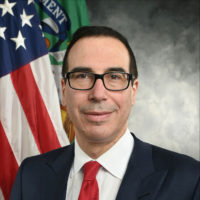Echoes of Tragedy: Unveiling the History of School Killings in America
In the tapestry of American history, woven with threads of triumph and progress, there exists a darker narrative - the grim chronicle of school killings. From the bucolic landscapes of the 18th century to the modern corridors stained with tragedy, these incidents have left an indelible mark on the nation's collective memory. Remarkably, this saga of violence stretches far beyond recent memory, reaching back through the centuries to reveal a chilling continuity of bloodshed.
The story commences in 1764, a time when the nation was but a fledgling colonial outpost, teetering on the edge of conflict and uncertainty. It was in this tumultuous era that the Enoch Brown massacre unfolded, casting a long shadow over the sanctity of learning. Nestled within the Pennsylvania wilderness, a small schoolhouse became the scene of unspeakable horror as Delaware Native Americans descended upon Enoch Brown and his pupils, leaving nine young lives brutally extinguished. This tragic episode, born from the crucible of colonial tensions, serves as a haunting prelude to a saga of violence that would unfold across the centuries.
Venturing into the 19th century, we encounter further instances of horror that punctuate the American landscape. In 1853, the sleepy town of Louisville, Kentucky, was rocked by the Bibb School massacre, a chilling reminder of the vulnerability of educational institutions. Amidst the backdrop of sectional strife and societal upheaval, a lone gunman stormed into the schoolhouse, leaving behind a trail of devastation as he mercilessly gunned down children and teachers alike.
Fast forward to the dawn of the 20th century, where the tranquil town of Bath, Michigan, would become synonymous with tragedy on an unprecedented scale. In 1927, against the backdrop of economic turmoil and simmering discontent, Andrew Kehoe, a disgruntled school board member, unleashed a meticulously planned assault that would claim the lives of 38 elementary school children and six adults. The Bath School massacre stands as a somber testament to the catastrophic consequences of unchecked rage and despair.
As the 20th century unfolded, the specter of school violence continued to cast its shadow across the nation, each incident leaving behind scars that would never fully heal. From the University of Texas tower shooting in 1966 to the Columbine High School massacre in 1999, the cycle of senseless bloodshed persisted, shaking the very foundations of American society.
Yet, amidst the darkness, there are glimmers of hope. Communities have united in solidarity, implementing measures to bolster security and support systems for at-risk individuals. Advocates have tirelessly championed legislative reforms and raised awareness of mental health issues. And educators, thrust into the frontline of defense, have undergone rigorous training to confront the unthinkable with bravery and compassion.
As the nation confronts its past and grapples with an uncertain future, the legacy of school killings serves as a sobering reminder of the fragility of innocence and the urgent imperative to safeguard the sanctity of education. From the forgotten echoes of Enoch Brown's schoolhouse to the haunting memory of Bath, Michigan, the narrative of school violence in America is not merely a chapter in history but a rallying cry for collective action, demanding a renewed commitment to ensure the safety and well-being of future generations.






